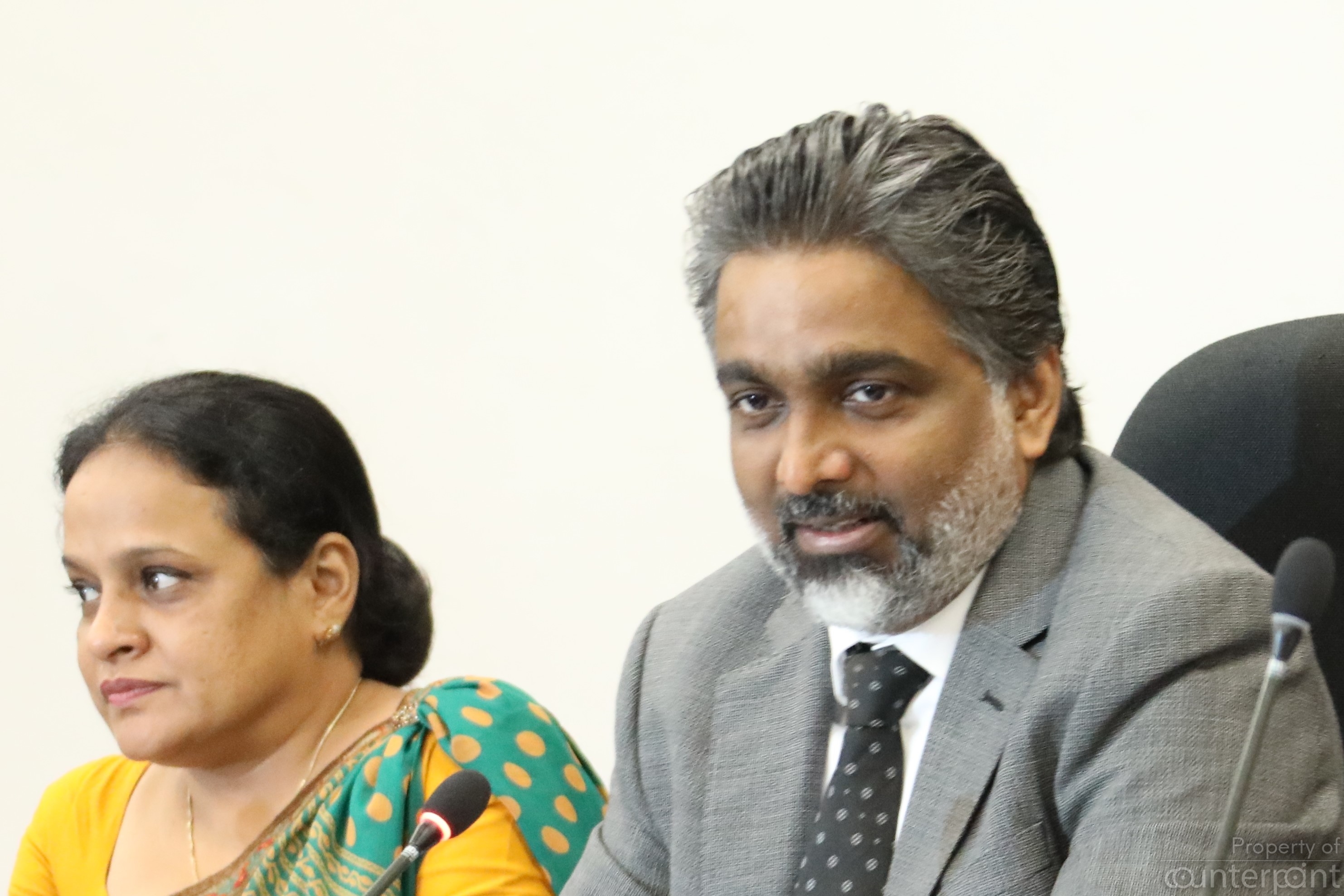
A committee comprising of experts from the education, health and other relevant fields is to be appointed to prepare the framework to be followed when putting together supplementary books on sexual and reproductive health for students.
The committee which is to also include the secretaries of the Ministries of Health and Education will be coordinated by the Additional Secretary (School Affairs) R M M Rathnayake.
The decision follows the controversy created over the publication of the Hathe Ape Potha, which drew a storm of protests from some quarters of society, who claimed the content of the book was inappropriate for students.
As reported by Counterpoint on previous occasions, the Hathe Ape Potha was commissioned by Parliaments Sectoral Oversight Committee on Women and Gender following nearly four years of discussions on “Teaching Reproductive Health to School Children,” and the various findings that indicated that while most students have little or no knowledge on this subject, large numbers of children of all ages were subject to sexual violations.
The decision to appoint the committee was made at the 3rd meeting held to discuss the issue. The previous meetings were chaired by UNP MP Professor Ashu Marasinghe, and comprised representatives of both the Women and Gender and the Education and Human Resources sectoral oversight committees. The meeting held on February 6th at the Parliament included only members of the Education Committee and was also chaired by Professor Marasinghe. The framework is to be worked out at a full day meeting on February 17th, in preparation for publishing a similar book for grade 8 and as the standard for similar books in the future.
The need for a framework was identified as it was pointed out that Sri Lanka lacks the necessary guidelines and policy in introducing such topics to students.
Dr. Wasantha Bandara one of those who is not happy with the book was of the opinion that one needs to be cautious of ulterior motives and personal agendas when putting together such information for students. He stated that according to experts he had tasked to review the Hathe Ape Potha, there were many issues with it.
However, Professor Marasinghe pointed out that as per the decision taken at the previous meeting, the Education Ministry was currently reviewing Hathe Ape Potha. Their report was due within the month. The task at hand was to identify a framework when publishing similar books in the future.
It was the opinion of most of the participants of these meetings that sex and reproductive health education must begin at pre-school stage. Dr.Chitramalee de Silva, Director, Family Health Bureau pointed out that one area to focus on is how best to introduce this subject to pre-schoolers and also the best method of communicating this message to students. A previous publication in the early ‘90’s ‘Udavu Yavvanaya”, she said, had come about following the many little notes sent to them by students who attended presentations on health related topics.
Responding to previous accustions from those opposed to the Hathe Ape Potha, both Drs. Gamini Samarawickreme and Asanthi Fernando of the Health Promotion Bureau, who were involved in writing the book stated that the it had been formulated following discussions with students and teachers. There is an urgent need to educate children on this issue. Dr. Samarawickreme pointed out that while even the pictures for the book were selected in consultation with the students, given the extent of sexual violence perpetrated on the young, he believed that it was extremely important to prevent such acts rather than arrest perpetrators after such a crime is committed.
The book, said Dr. Fernando is necessary to fill the gap that has been created owing to parents and teachers being unable to address such issues with children.
An Education Ministry official also stated that while school text books are put together by subject experts, external books for libraries etc. are scrutinised by a review board to determine suitability, books such as the Hathe Ape Potha, though prepared by Health officials are reviewed by the Education Ministry prior to publication. He added that a total of 3.5lakhs of the book had been published and distributed to schools. Only 25,000 had been returned. Once the Education Ministry report is submitted, if there are any issues with the book, those amendments would be attended to prior to the next print order.
As some opposed to the book took issue over the section on masturbation and went public with it, students, including the younger ones are now reading just that page, stated one of the education officials.




